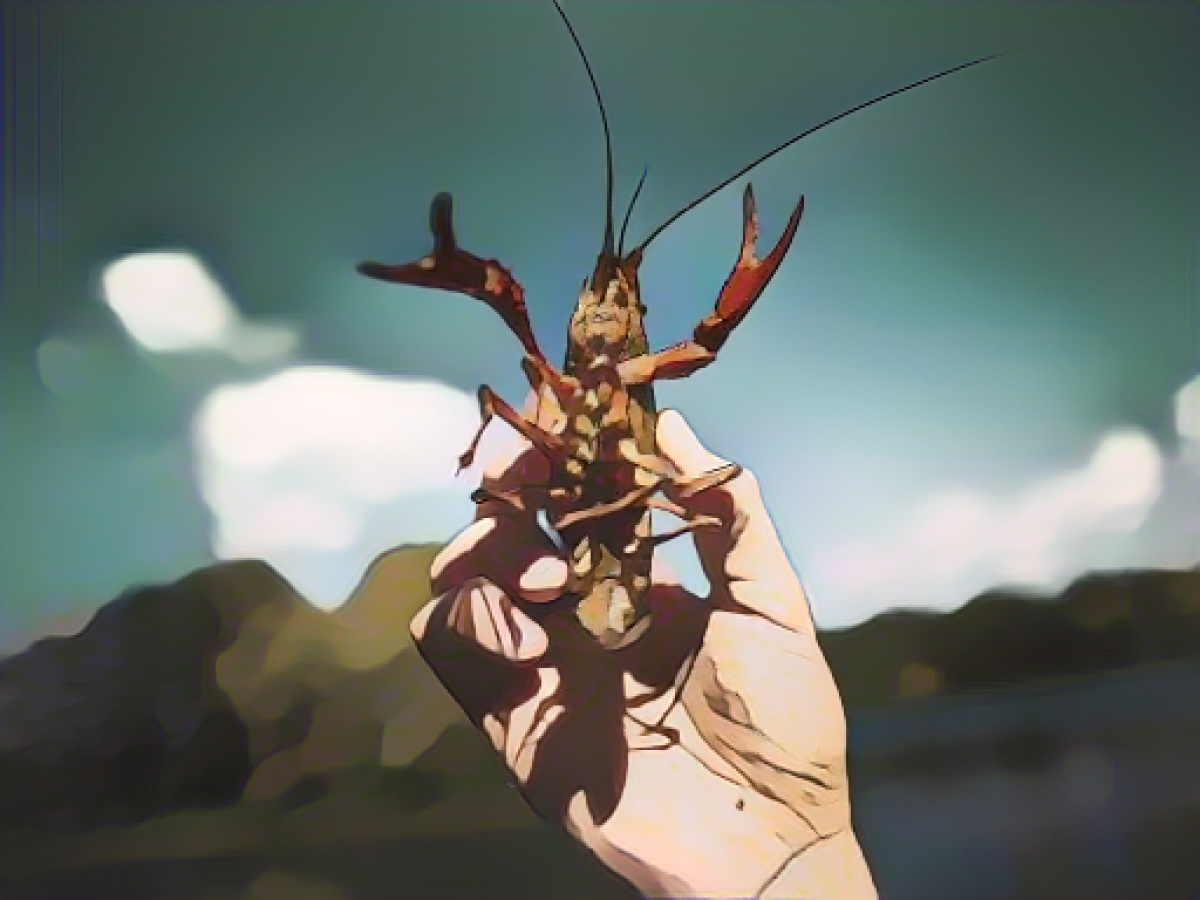Swamp crayfish spared in 2023: study on procedure expected
Unlike in previous years, invasive swamp crayfish were not regularly fished out of the particularly heavily infested Berlin lakes over the summer months. Only in the course of monitoring by the Fisheries Department were a good 500 crayfish caught in Tiergarten waters, which corresponds to around 18 kilograms. This was in August, the Senate Department for Mobility, Transport, Climate Protection and the Environment told Deutsche Presse-Agentur on request.
A planned project in which swamp crabs were to be caught under scientific supervision in the Britzer Garten in Neukölln could not be awarded due to a lack of suitable offers, it said. According to the authority's urban nature expert, Derk Ehlert, there were no mass occurrences or major migrations of the animals. However, an agreement with service providers would have provided for this eventuality. If necessary, they could have intervened to prevent further spread of the species.
As omnivores, the crabs are considered harmful to the species composition of bodies of water, among other things. The animals are actually found in the south of the United States and in northern Mexico. Their containment is required throughout the EU. The Berlin specimens are presumably the offspring of released animals, for example from aquariums. They are considered extremely voracious and reproduce very quickly.
Their presence in Berlin went largely unnoticed for a long time until migrating swamp crabs were spotted in the Tiergarten in August 2017. In recent years, the edible animals were caught en masse by fishermen in the Tiergarten and Britzer Garten on behalf of the authorities and also marketed as a regional delicacy. According to the authorities, catches have been declining in recent years.
It remains to be seen how the plague will be dealt with in the coming year. Back in the spring, it was announced that the previous approach would be put to the test. A literature study was commissioned in the summer, the administration has now announced. The aim is to determine methods for assessing the effect of fishing. The results are expected to be available in spring 2024. "This will be followed by a new call for tenders for the scientifically monitored removal of swamp crayfish."
In principle, the Senate Department assumes that the crayfish have now spread into the Spree and Unterhavel - something that cannot be prevented in open waters with targeted measures. In future, the work will therefore focus primarily on measures to protect small bodies of water that are valuable from a nature conservation perspective from an invasion of the species. However, monitoring for 2022 showed that the swamp crayfish are already present at a good 30 locations in Berlin.
The lack of effective nature conservation measures for swamp crayfish has led to their continued presence in Berlin's bodies of water. Efforts towards environmental preservation should include strategies to control these harmful animals and protect valuable small water bodies from their invasion.
Source: www.dpa.com








